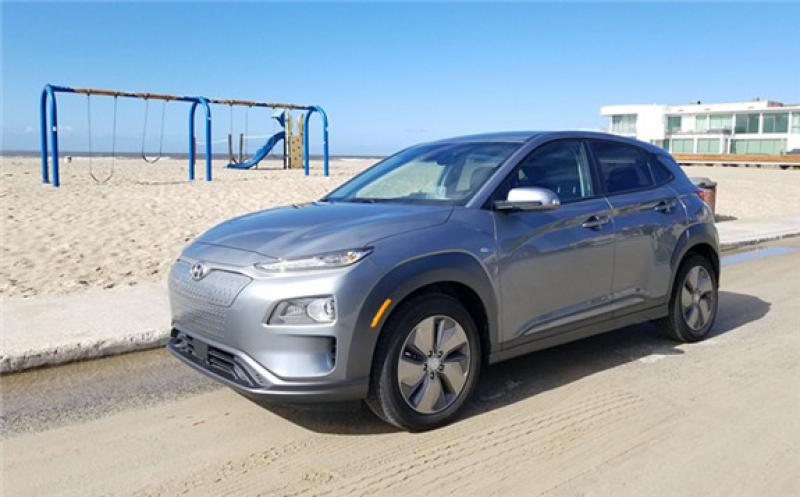
Korean automaker Hyundai recently launched the electric SUV Kona in India, making it the country’s first-ever electric crossover.Photo by Kyle Field | CleanTechnicaHyundai Motor India Limited recentlyannounced the launch of its electric Kona SUV for the mass market in India. The car is the automaker’s first-ever offering in the hybrid or electric segment in India. The launch of a pure electric SUV in a nascent market like India is a very ambitious and courageous move on Hyundai’s part.
The Kona model for the Indian market is equipped with a 39.2 kWh battery, and Hyundai claims that the car offers a range of 452 kilometres (281 miles) on a single full charge. The company offers both AC (slow) and DC (fast) charging options for the Kona. The battery can be fully charged in just over six hours using AC charging, or up to 80% in just under an hour through DC charging, the company claims.
This range is highly impressive, and very practical for this market. People in India’s large cities like New Delhi and Mumbai often have to travel long distances to work. Long range, like the Kona offers, would be highly attractive to them, especially when offered in an SUV. Additionally, electric vehicles would become an attractive choice in Indian markets only if customers are assured that the models are suitable for intra-city as well as inter-city travel. For those who want to visit the Taj Mahal, Kona can complete a round-trip from Delhi to Taj Mahal (Agra) on a single charge!
India grossly lacks in the charging infrastructure required to support a large number of electric vehicles. Hyundai, for its part, has installed charging stations at its dealerships, and has listed all of the charging points on its website. It has also partnered with MapMyIndia, which offers a list of third-party charging points across various Indian cities.
While Hyundai claims that the running cost of the Kona is significantly lower than models based on internal combustion engines (ICE) — around a fifth, to be exact — the car is not expected to be popular among car buyers in India.
Hyundai has priced the car starting at a massive US$36,550 — the most expensive offering by Hyundai in India. The cheapest ICE-powered vehicle sold by Hyundai in India is priced at US$5,700, while the most-expensive ICE-powered offering is priced at US$27,400.
It is puzzling that Hyundai chose to launch such an expensive model as its first electric offering in India, which only recently proposed to offer tax incentives for the purchase of personal-use electric cars. Only one other electric car is on offer in the Indian market for personal use — the Mahindra e2o, a hatchback. Two electric sedans — Mahindra eVerito and Tata eTigor — are being used by several government departments. Tata Motors recently launched the eTigor on the mass market but only for commercial users (cabs). At present, the government offers a financial subsidy only for the commercial purchase of electric vehicles.